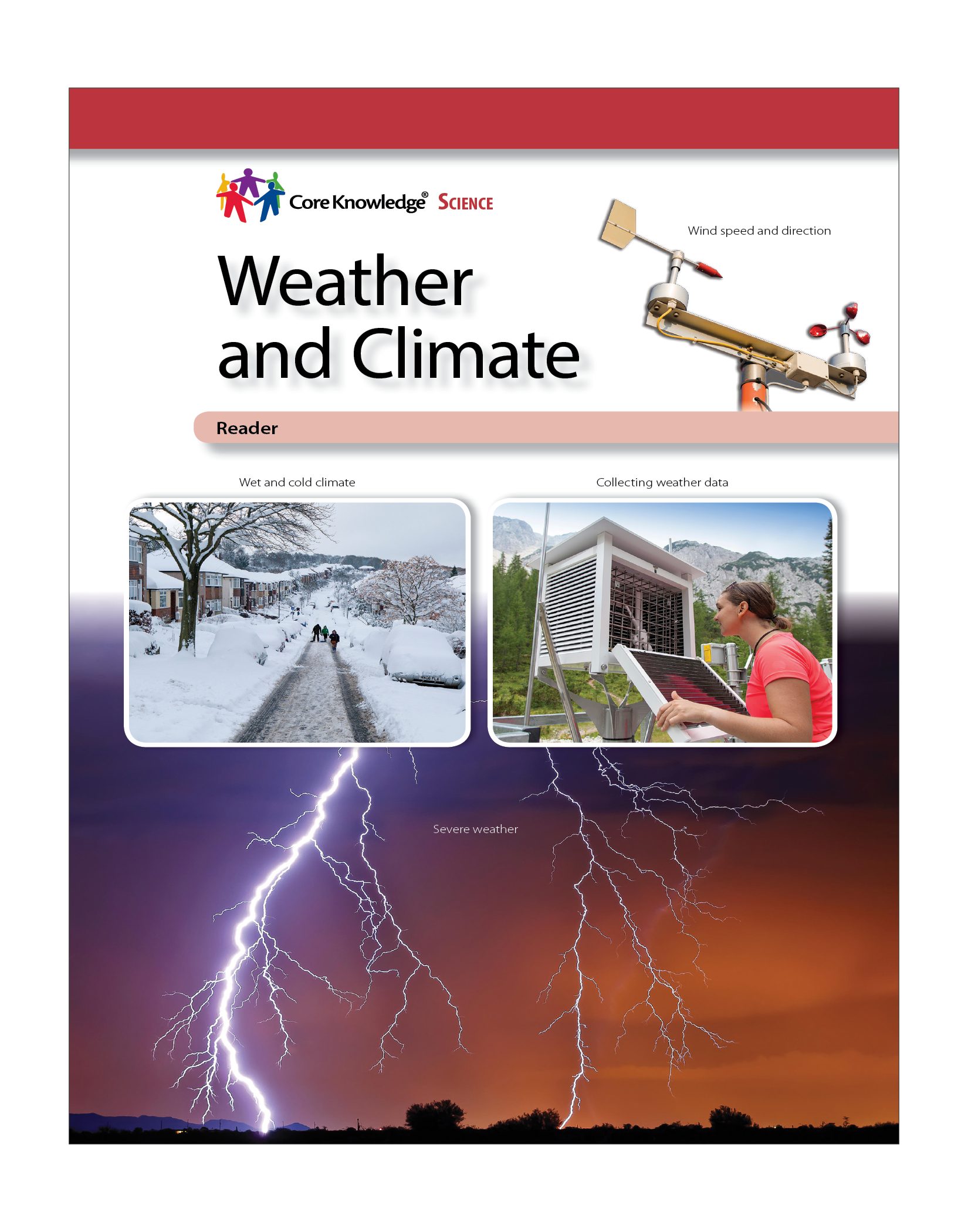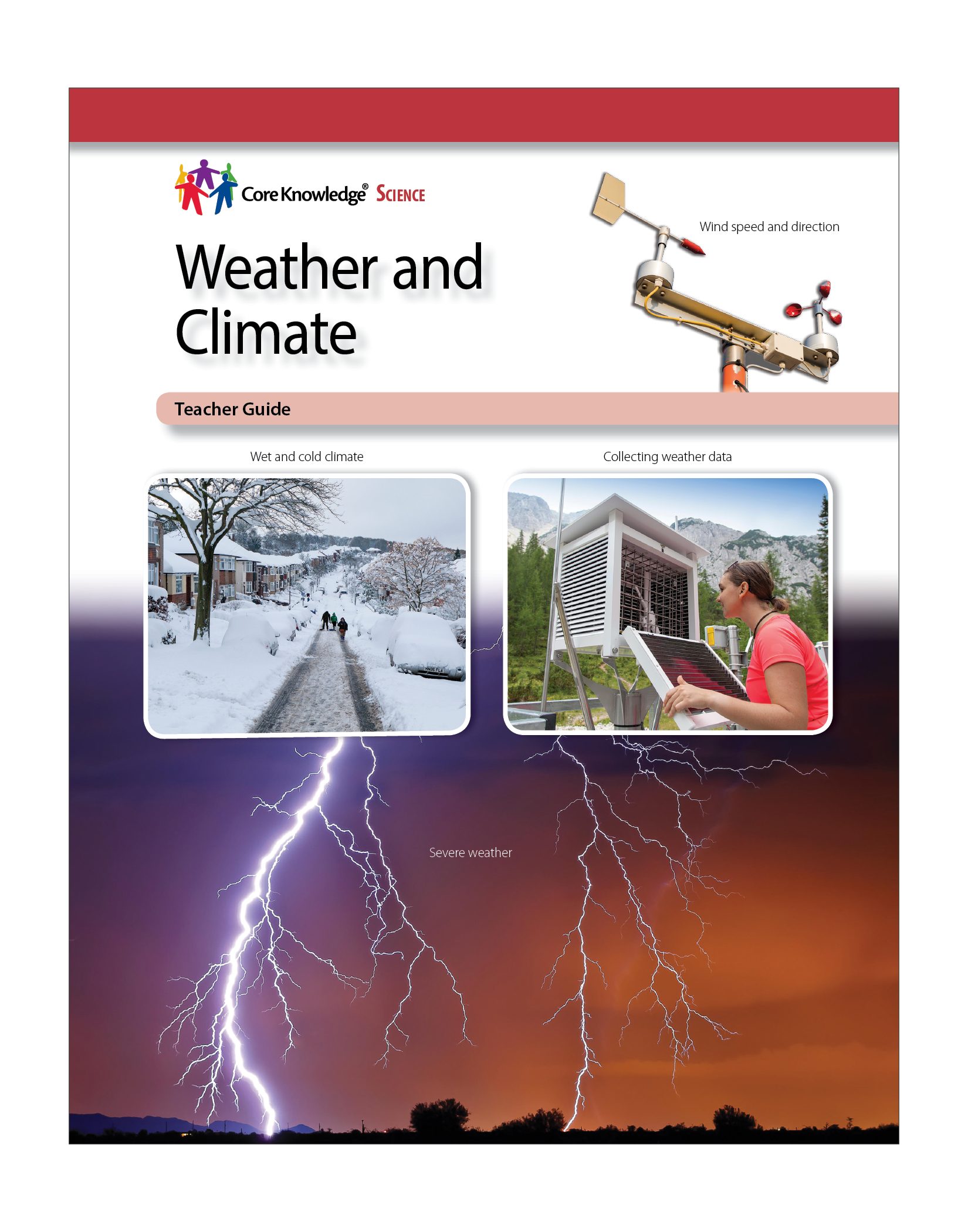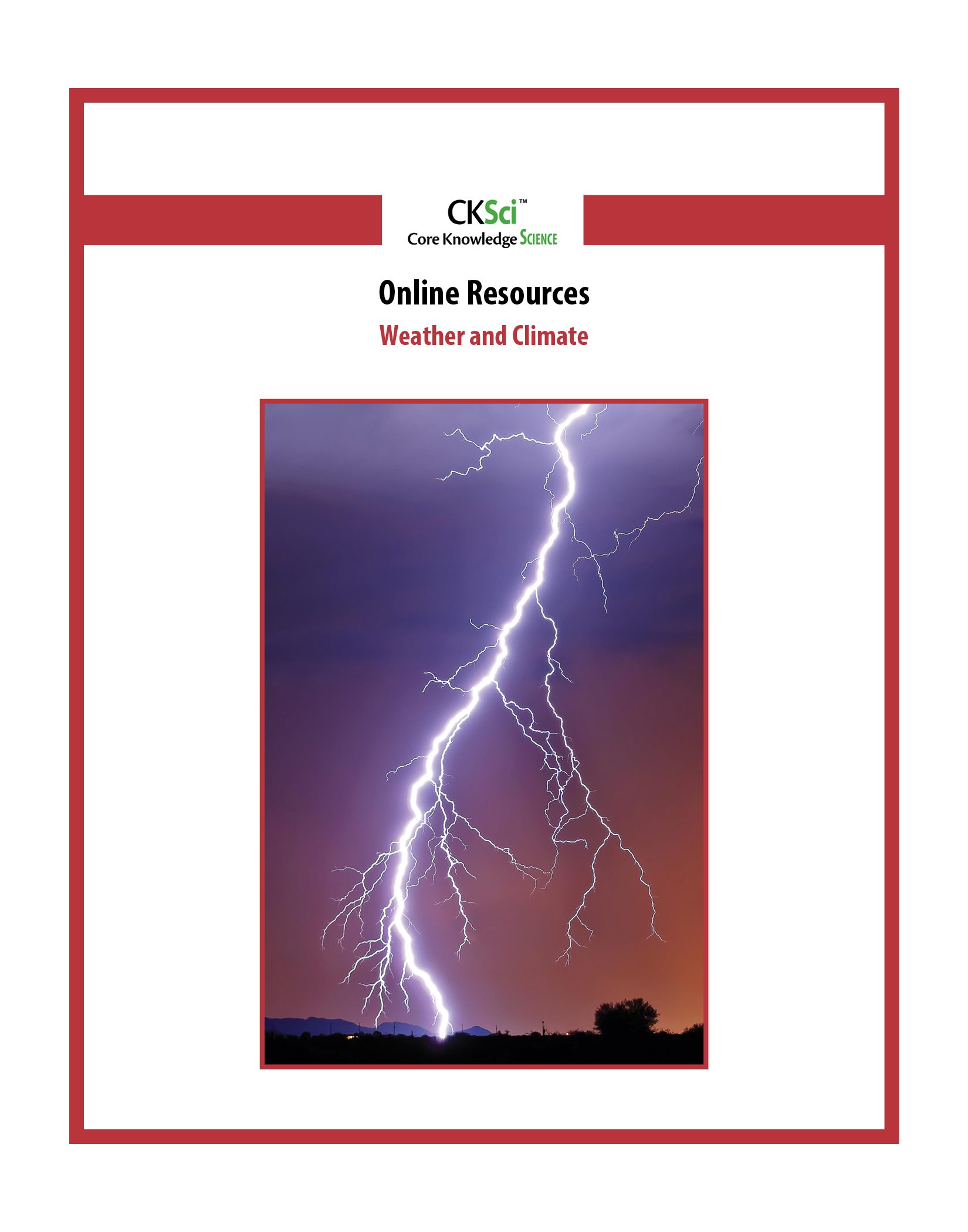
CKSci Unit 4: Weather and Climate
Focus:
This unit focuses on weather and climate. Students describe patterns of weather across time and location. They learn the difference between weather and climate.
Students study Earth’s atmosphere and the mixture of gases surrounding our planet. A major focus of this unit is the role of water in the atmosphere and the importance of evaporation, condensation, and precipitation.
Scientists collect data on atmospheric conditions—and students explore this process as they learn about weather instrumentation. Meteorologists use the information they gain from data collection to forecast the weather. Climatologists study patterns over longer time periods using much of the same data.
Students also learn that some forms of weather can be severe and hazardous, such as a hurricane, a tornado, or a lightning storm. People use engineering design to develop solutions that prepare society for hazardous weather and to minimize risks.
Number of Lessons: 13
Instruction Time:
- Each Lesson is designed to be completed in one 30–45-minute class period. Some lessons may take more than one class period.
- Some single-day activities and performance tasks might require setting aside a longer block of time.
- This Unit should be completed in 18 classroom days.
- A Pacing Guide is provided within the Teacher Guide.
- A complete list of Materials needed to complete the unit is provided in Online Resources.
Additional Search Terms:
atmosphere • air pressure • weather • climate • water vapor • precipitation • humidity • wind • air mass • meteorologist • weather front • season • weather hazard • nonfiction • informational text



